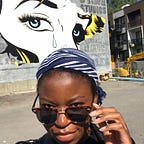Confessions of A Pre-Woke Black Brit
It has been a difficult year. But more than that, it has been a difficult year to be black.
It genuinely feels like I have learned more about racism in 2020 than in all the years I’ve been alive.
The resurgence of the BLM movement following the death of George Floyd sent ripples across the world and it was only the…
